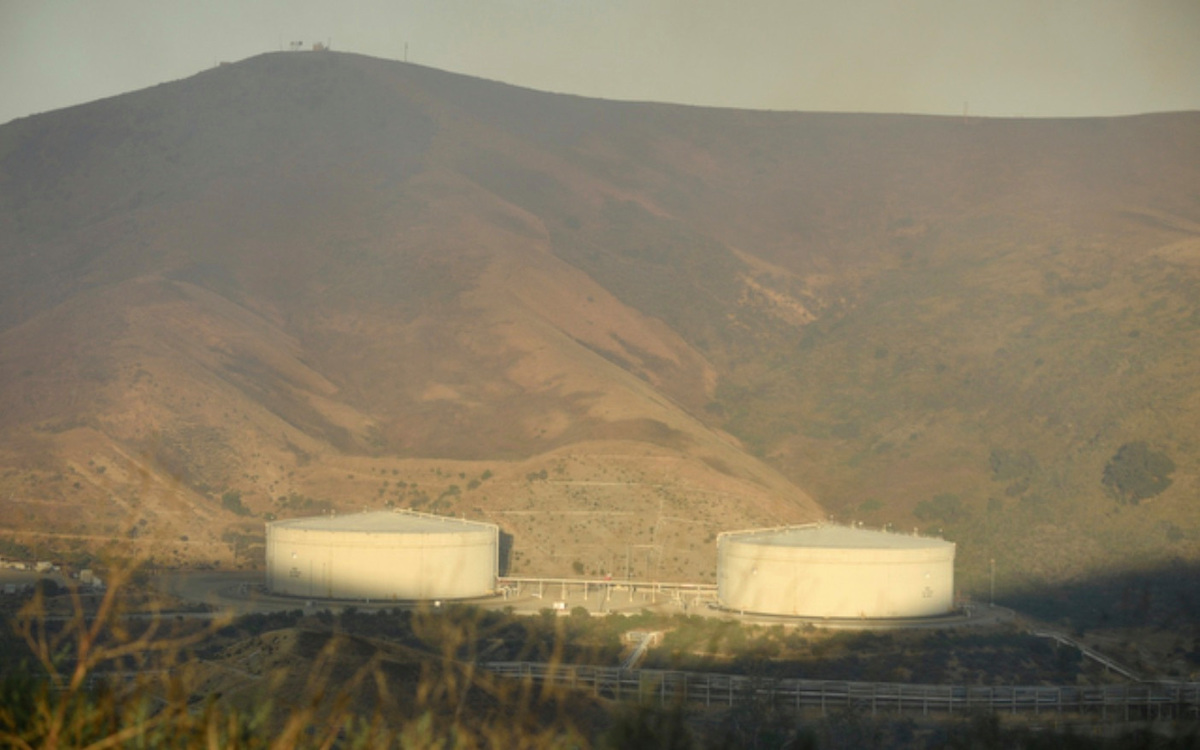ExxonMobil Trucking Battle Heats Up in Santa Barbara
County Energy Planning Staff Recommend Planning Commission Approve Controversial Oil-Trucking Plan

With its first major hearings before the Santa Barbara County Planning Commission two weeks away, ExxonMobil just got a big boost from county energy planning staff, who recommended the commission approve the oil giant’s intensely opposed plans to truck oil from the company’s 500-acre Las Flores Canyon facility along the Gaviota Coast to an oil processing terminal in Kern County 140 miles away.
A coalition of environmental organizations has vowed to stop ExxonMobil. They argue that Highway 166 is too steep, winding, and treacherous to safely handle the 78 truckloads a day ExxonMobil is proposing to get oil pumped from the three rigs off the coast of Santa Barbara to market since the Plains All American Pipeline rupture of May 2015 left ExxonMobil effectively landlocked and stranded.
County energy planners estimate it will take another four to seven years before the stretch of corroded pipeline can be replaced. In the meantime, they and ExxonMobil have concluded trucking is the only viable option.
Linda Krop, staff attorney for the Environmental Defense Center and a veteran of the county’s oil wars, insisted that oil production at Las Flores Canyon was initially approved on the strict condition that Exxon’s oil — it hadn’t merged yet with Mobil — be shipped by pipeline. Trucking, she argued, is strictly a discretionary call that the county planning commissioners can make only if they determine that all negative environmental impacts have been mitigated to the extent possible and that the pipeline is no longer a feasible alternative.
The Environmental Impact Report — just released — concluded that the risk of trucks crashing and spilling their loads into creeks and waterways remained too great to be mitigated.
Sign up for Indy Today to receive fresh news from Independent.com, in your inbox, every morning.
Environmental critics of the proposal noted in the past 20 years, there have been 258 truck accidents along the route from Las Flores Canyon to the Pentland oil terminal in Kern County. In response, ExxonMobil has agreed to not truck on days when there’s a 50 percent chance of more than a half an inch of rain.
County energy planners note that when ExxonMobil was issued an emergency trucking permit in February 2016 — to empty out inventory to allow maintenance work — 2,500 truckloads of oil were hauled out of Las Flores Canyon without incident.
Beyond trucking safety, Krop has argued that by allowing trucking, the planning commissioners would be allowing ExxonMobil to restart its processing and production operations in Santa Barbara, which produce 300,000 metric tons of greenhouse gases a year. County energy planners argue that ExxonMobil cannot be held to clean-air standards that were not part of the original operating conditions imposed in the 1980s.
If approved, the trucking proposal would allow ExxonMobil to produce at roughly half its historic production peaks. If the approval is denied, it would effectively shut down ExxonMobil until the new stretch of pipeline can be installed.
The Planning Commission has scheduled two days of hearings: September 29 and October 1. However the commissioners rule, the decision will certainly be appealed to the County Board of Supervisors. And whatever decision the supervisors make will inevitably be the subject of litigation. For both sides, the stakes are too high not to.
CORRECTION: This story was updated on 9/20/21 to correct the date of the Planning Commission’s first scheduled hearing on ExxonMobil’s plans, which is September 29 not September 30.
Support the Santa Barbara Independent through a long-term or a single contribution.



